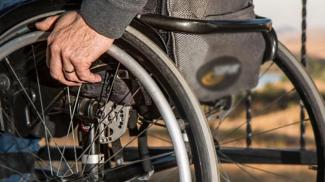
Are you confused about all the labels used for persons with disabilities? Manisha Shastri and the PatientsEngage tea, explains why Person comes first, the origins of the word "handicapped" and what's wrong with other labels. And when in doubt, ASK
So, let me try and break this down for those who don’t understand why the term ‘persons with disability’ is politically correct and accepted, while all other terms are fairly offensive and exclusionary in nature.
While addressing a person with disability, you use the term 'person with disability’ because their disability is not their primary identity, they are a person first. Therefore, you use 'person first language.’ It is what is the accepted term as per the United Nation Convention on the Rights of Persons with Disabilities (UNCRPD), which India has ratified. It is also what is accepted internationally and by most advocacy groups.
You don’t call a person with burns a 'burnt person’ or a person who has cancer 'a cancerous person’, you say person with burns/ cancer. Similarly person with disability/ autism/ mental illness/ visual impairment so on and so forth.
If you are still unsure, ask the individual what they are comfortable with. There are groups of individuals with hearing impairment that preferred to be called a deaf person, rather than persons with hearing impairment. So just ask. This can apply to people with visual impairment some of whom may prefer to be referred to as a blind person.
Reasons why all other terms are wrong and have been rejected over a period of time:
Differently abled: Everyone is differently abled. You use your right hand to write, I use my left. You are good at languages, someone else isn’t - you both are differently abled.
Special needs: It’s called reasonable accommodation. A person with disability does not have 'special needs’, they have needs which may or may not require certain amount of accommodation - which could be something as simple as building a ramp for a wheelchair or providing written material in Braille. Nothing special. Some do prefer saying person with high support needs.
Specially Challenged/ Special/ Differently Challenged: People with disability are not special. They are regular people, like you and me. There is nothing 'special’ about them or their disability. Their needs may be different - yes, but that does not make them differently challenged. Everyone faces challenges, that doesn’t make you differently challenged - why them?
Handicapped: The good, old, all time favorite term. Post WWII war veterans injured or disabled during the war stood on the roads begging with their 'cap in hand’, thus came about the term and its fairly derogatory.
They aren’t differently abled, challenged or special. They are first a person, like you and me. A person with disability. Their disability does not define the person they are. Nor is it their primary identity. The person comes first, the disability later.
Therefore, Person with Disability (PWD).
Update:
There is a growing trend for person with disability to refer to themselves as a Disabled Person. So once again, just ask or if you can't ask - stick with Person with Disability.
If someone asks you to refer to them as "Disabled", do not correct them and say, you are specially abled.
Autism is another area which has evolved a fair bit. Some prefer to call themselves autistic, some prefer "on the autism spectrum", while others prefer neuro-diverse. But pretty much no one prefers "person with autsim"
Mental Retardation is not acceptable Intellectual Disability or Learning Disability is
Person with Mental Illness is the right term.
There are many other aspects like Wheelchair user and not wheelchair bound. A wheelchair is a mobility device.
Original article was contributed by Manisha Shastri, who has a Master's in Social Work in Disability Studies and Action, and works in the fields of Disability, Mental Health and Child Rights,
The editorial team of PatientsEngage has updated the article subsequently






